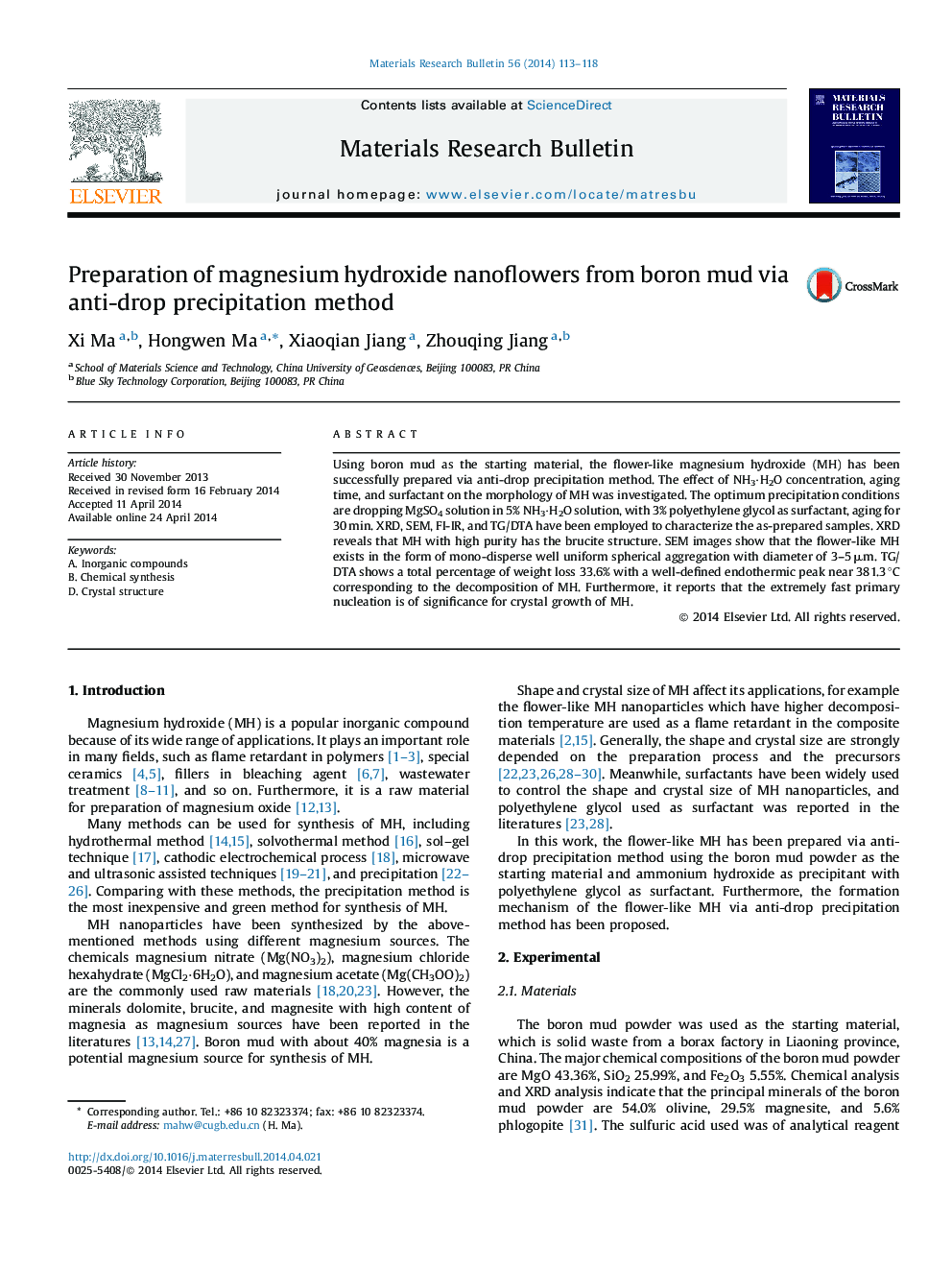| Article ID | Journal | Published Year | Pages | File Type |
|---|---|---|---|---|
| 1488364 | Materials Research Bulletin | 2014 | 6 Pages |
•We use the anti-drop precipitation method for synthesis of magnesium hydroxide.•Boron mud which is solid waste from a borax factory is used as the magnesium source.•The magnesium hydroxide nanoflowers are prepared in a short time.•The as-prepared magnesium hydroxide can be used as an effective flame retardant.
Using boron mud as the starting material, the flower-like magnesium hydroxide (MH) has been successfully prepared via anti-drop precipitation method. The effect of NH3·H2O concentration, aging time, and surfactant on the morphology of MH was investigated. The optimum precipitation conditions are dropping MgSO4 solution in 5% NH3·H2O solution, with 3% polyethylene glycol as surfactant, aging for 30 min. XRD, SEM, FI-IR, and TG/DTA have been employed to characterize the as-prepared samples. XRD reveals that MH with high purity has the brucite structure. SEM images show that the flower-like MH exists in the form of mono-disperse well uniform spherical aggregation with diameter of 3–5 μm. TG/DTA shows a total percentage of weight loss 33.6% with a well-defined endothermic peak near 381.3 °C corresponding to the decomposition of MH. Furthermore, it reports that the extremely fast primary nucleation is of significance for crystal growth of MH.
Graphical abstractFigure optionsDownload full-size imageDownload as PowerPoint slide
